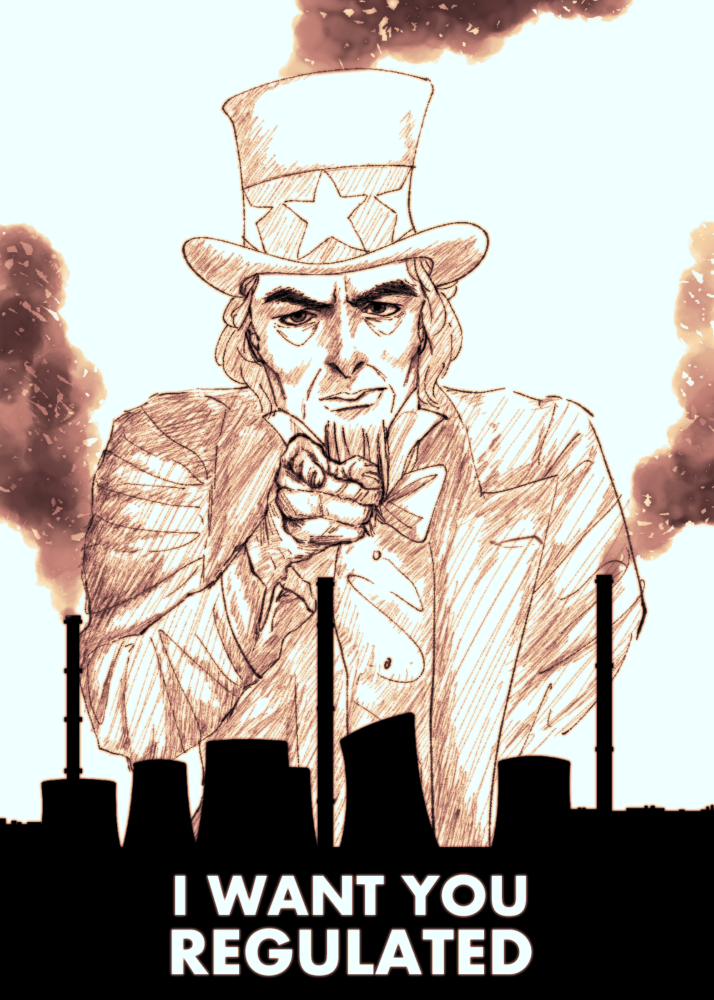
By Brandon Nguyen
Government regulation has been an ongoing ideological battle between Democrats and Republicans and won’t cease anytime in the near future. It will be one of the biggest contrasts between the Trump and Biden administration.
The Trump administration, during its four years, has done massive deregulation in attempts to align the country with the conservative free market principle and boost the economy. With the incoming Biden administration, it is expected that many of these regulations will be reimplemented in an attempt to protect the environment.
For example, since 1990, the Environmental Protection Agency (EPA) has led a 74% reduction in carbon monoxide, 57% drop in nitrogen dioxide, and 89% reduction in sulfur dioxide, all resulting in cleaner air. The Clean Water Act of 1972 showed a 25% improvement in water quality and increased the number of rivers safe for fishing by 12%. Through the EPA’s Superfund Task, cleanup of the toxic contamination that drained into land and water has been expedited and 22 sites, previously contaminated, have been taken off the National Priorities List. Low income and minority Americans have most benefited from the Superfund site cleanups because low-income areas historically have been built near contaminated dumps.
In addition, The Department of Labor passed the Wages and the Fair Labor Standards had set the standards for a federal minimum wage of $7.25 per hour, overtime pay, recordkeeping, and youth employment in the private sector replacing child labor. The Food and Drug Administration (FDA) has improved public health through its regulation of tobacco products under the Tobacco Control Act and has set standards for cosmetics, drugs, medical devices, food and more.
Government regulation was historically added to protect the safety and security of everyday Americans, clean the environment, and to break up monopolies to allow for the free market to function properly. However, there has been an exponential increase in the regulations over the years with 45,000 more pages in the Federal Register than 40 years prior, 160% increase in stock regulation from 1975 to 2016, and rules expected to affect $100 million annually or more increasing by 38%. Opponents of regulation have argued that many of the rules are unnecessary, decrease business, wages, employment and are government overreach.
A benefit of deregulation is that it increases economic activity. This is because there are less rules that businesses have to abide by making it easier for them to enter the market which will boost competition and innovation. Regulations also stifle construction of buildings and projects because of the many different government agencies that oversee the regulations For example, almost all buildings have to meet the rules placed by the EPA, FMCSA (Federal Motor Carrier Safety Administration), OSHA (Occupational Safety and Health Administration), and the FHWA (Federal Highway Administration).
“We had cases where it would take 20 years to build a highway. You had to go through various agencies to get the same permit,” Donald Trump said when announcing his deregulation efforts.
Coal was one of the biggest industries that were hit by regulations, affecting especially the economy in Eastern Kentucky. The Obama administration’s efforts to reduce fossil fuel emissions meant a loss of 13,000 coal industry jobs, lowered production from 17 million tons to 4.1 million tons of coal and reset the number of Kentucky coal jobs to the number it was in 1898, 6399 jobs.
Another government regulation was the Affordable Care Act (Obamacare), which required everyone to buy health insurance yet gave health coverage to more than 20 million Americans, has been one of the biggest government regulations in history. Because of Obamacare, employees saw a loss of $19 billion in wages, a cut of 295,030 jobs and a shutdown of 10,130 small businesses just in the year of 2015. Obamacare’s added health insurance tax also increased health insurance premiums in 2018 by $158 per person.
With these facts in mind, policymakers will have to weigh the costs and benefits of future regulations. The Georgia run-off Senate seats on Jan. 5 will determine whether Democrats have control of the legislative and executive branches and if they will be able to pass more regulations.





